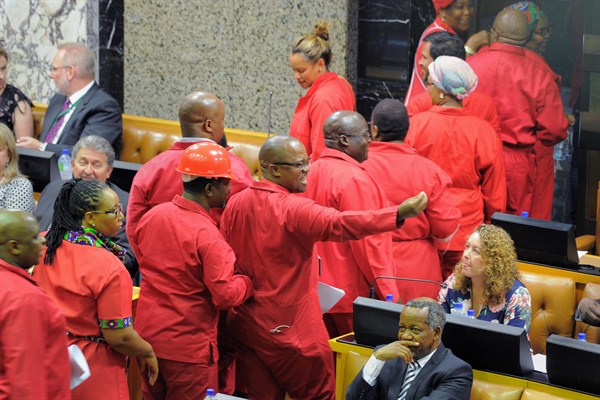On Feb. 16, South Africa’s new president and head of the ruling African National Congress party, Cyril Ramaphosa, delivered his first state of the nation address, which was sharply criticized by the country’s political opposition parties. After finding it easy to capitalize on the scandal-plagued presidency of former President Jacob Zuma, the opposition had its first opportunity to challenge Ramaphosa on his own policies, which were previously not well known. In an email interview, James Hamill, a lecturer in the Department of Politics and International Relations at the University of Leicester and expert on South Africa, discusses the current state of the country’s opposition parties, and the opportunities and challenges they face with new leadership in the ruling ANC party.
WPR: What is the state of South Africa’s political opposition today, and what are the major differences between its political vision for the country and the ANC’s?
James Hamill: The past five years have been a period of growth for the principal opposition party in South Africa, the Democratic Alliance, or DA. It secured just over 22 percent of the vote in the 2014 national election, and routed the ANC in the Western Cape province that has become its stronghold. This was a jump from the nearly 17 percent of the national vote it tallied in 2009. The increase at the national level has been matched by an impressive performance in municipal elections, where it boosted its share from 23.8 percent in 2011 to 26.9 percent in 2016. Over the same period, ANC popularity has fallen steadily while under the helm of former President Jacob Zuma, with a declining share of the vote in every successive election it contested.

